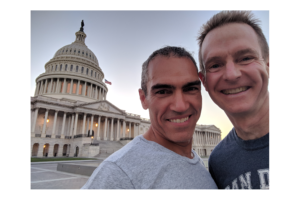Each Thursday morning, I do neurology clinic. It’s an interesting experience, completely different from when I am in clinic in the USA. Here in Malawi, as in the US, the most common diagnosis seen in the outpatient pediatric neurology clinic is epilepsy. It’s the same except it’s completely different. Though scientists who have performed community-based surveys of epilepsy in Africa believe the full spectrum of seizure disorders is the same as in the US, as a neurologist on the ground I would never know it. The only seizure history I get from parents is of grand mal (generalized tonic-clonic) events. The other seizure types I see in the US (absence [also called petit mal], complex partial seizures where children may stare, smack their lips and walk around aimlessly) are essentially absent here. Or I rarely hear about them. I’ve thought about it some and believe there are several reasons for this US/ Africa epilepsy history divide.
Unfortunately, I don’t speak Chichewa, and most of our patient families do not speak English. I use a translator, but we all know how subtleties (which is what neurology is, really) are often Lost in Translation. Supporting the possibility of a communication problem was the visit from a family I saw in clinic three weeks ago. Both parents were well dressed and spoke excellent English. They had brought in their four year old son who was having episodes of staring, lip smacking, and moving his arms purposelessly. They have videos on their smartphones. Bingo. Complex partial epilepsy. I had not seen another case in years. Every other patient that day and subsequently was Chichewa-speaking. The only history I got was of tonic-clonic seizures.
As in most of medicine, focusing efforts on prevention of neurological disorders is the most sensible course to improving the personal and public health burden of these conditions.
A second possible reason that I rarely hear about anything except grand mal seizures is that community knowledge about other seizure types may be poor. Though American families often talk about “staring seizures,” perhaps in Malawi, the abnormal event that could be a seizure is a generalized tonic-clonic one. Perhaps poor Malawian families believe staring spells are something else and don’t even recognize them as a potential neurological problem.
Third, it’s possible that frequent staring, purposeless movements, or a few muscle jerks do not rise to the level of importance to warrant a visit to Queen Elizabeth Central Hospital. The mean gross daily income in Malawi is equivalent to $2.91 USD. Even if a hospital is physically close (which is not likely, as there are only three referral hospitals in the entire country, and only Queen’s has a pediatric neurologist) a medical problem likely has to be severe to warrant spending money on a minibus ride, and dealing with navigating the medical system.
Eighty to ninety percent of children seen in the outpatient pediatric neurology clinic here in Blantyre have a history of either cerebral malaria (the disease we study and treat on the Pediatric Research Ward) or birth asphyxia, lack of oxygen to the brain at the time of birth. Problems during the birth process are very common here, and both maternal and fetal mortality rates are high. Of course, not all children die, and survivors are often left with epilepsy, cerebral palsy, developmental abnormalities, and learning problems. Birth asphyxia is tragic, preventable, and sad all rolled together.
I’ve often thought about how to improve neurological care for the children of Africa. The non-availability of expert clinicians and physicians is a problem. Malawi has one pediatric neurologist. He is an excellent physician. He is also now the Head of the University of Malawi College of Medicine and so doesn’t often have time to see patients. Many African countries have zero neurologists. Physicians without specialty training are forced to “wing it.” Resources both diagnostic (like genetic testing, EEG studies, MRIs) and therapeutic (antiseizure medicines) are either completely unavailable or their supply is erratic, intermittent, and unpredictable.
As in most of medicine, focusing efforts on prevention of neurological disorders is the most sensible course to improving the personal and public health burden of these conditions. Since cerebral malaria or birth asphyxia so commonly precede a need to visit the pediatric neurologist, we should focus efforts on these two disorders. Research into cerebral malaria pathophysiology and treatment is ongoing on the Pediatric Research Ward and in several other centers around the world. Efforts to strengthen obstetrical expertise must continue to prevent birth asphyxia from ever occurring. Though it sounds counterintuitive, the greatest gift I could receive is if my job as a pediatric neurologist were made obsolete.






